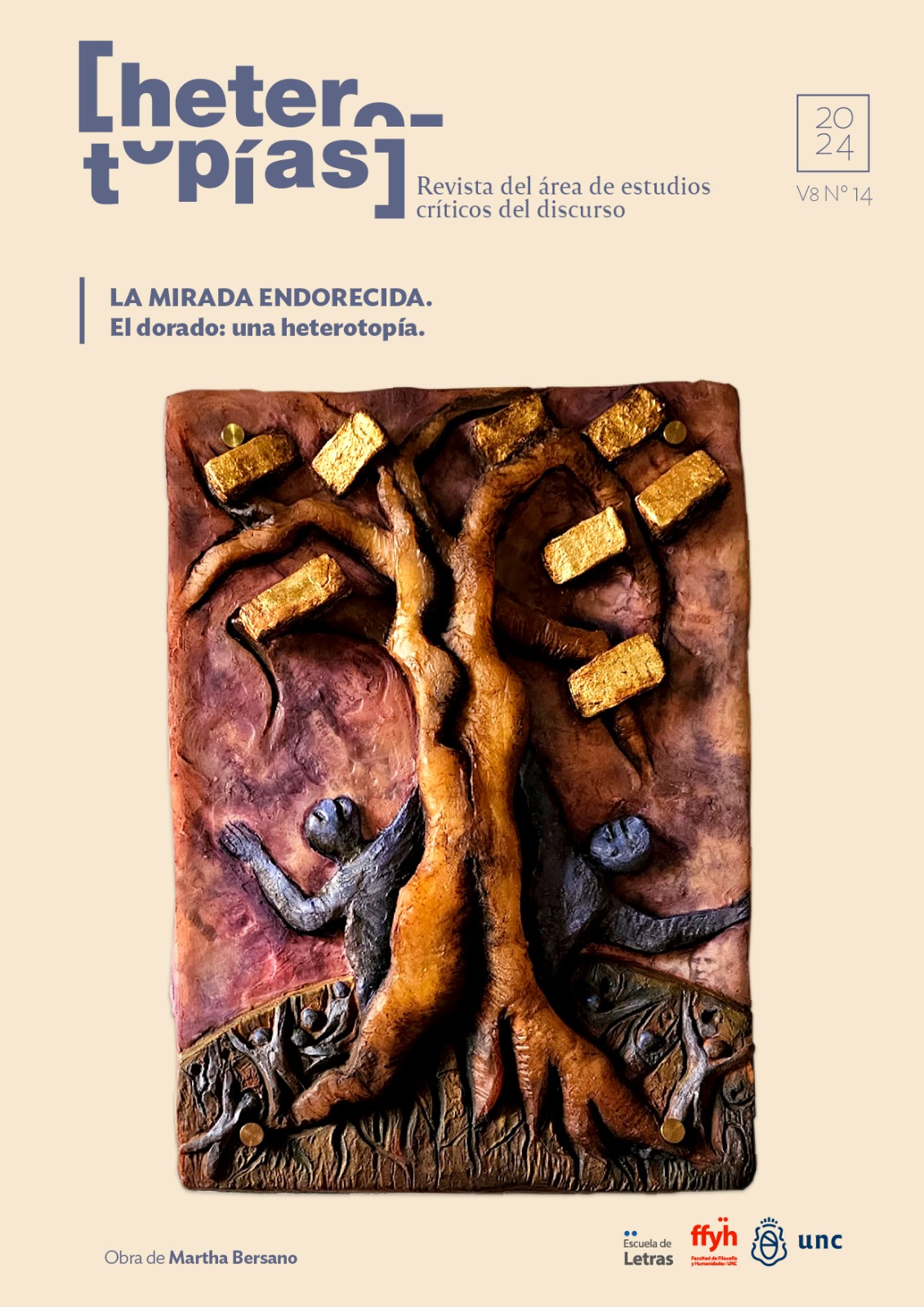Set “The Table”, again: a conversation with the Urbomaquia collective (Liliana Di Negro, Magui Lucero y Sandra Mutal), together with Mirta Antonelli
Main Article Content
Abstract
We present a conversation we had with Liliana Di Negro, Magui Lucero and Sandra Mutal, members of the Urbomaquia collective, and Mirta Antonelli, founder and director of the journal Heterotopías in the area of letters of critical discourse studies. The talk focused on the reactivation by Urbomaquia of the artistic intervention "La mesa", on the pedestrian street of Córdoba, on September 20, 2024. In it, we discuss the intersections between art and politics, the strategies of aesthetic intervention in public space and we problematize the effectiveness of artistic devices to break into the current scenario. We invite readers to join the following choral composition that aims to rethink the ways of situating ourselves, from dissident poetics, in the face of the crisis of the present.
Downloads
Article Details

This work is licensed under a Creative Commons Attribution-NonCommercial-ShareAlike 4.0 International License.
Those authors who have publications with this journal, accept the following terms: Those authors who have publications with this journal, accept the following terms:
a. The authors will keep their copyright and guarantee to the journal the right of first publication of their work, which will be simultaneously subject to the Creative Commons Attribution - Non-Commercial - Share Alike (by-nc-sa) Attribution License; no commercial use of the original work or any derivative works is allowed, the distribution of which must be done with a license equal to the one that regulates the original work.
b. Authors may adopt other non-exclusive license agreements for the distribution of the published version of the work (e.g., deposit it in an institutional telematic archive or publish it in a monographic volume) provided that the initial publication in this journal is indicated.
c. Authors are allowed and recommended to disseminate their work through the Internet (e.g. in institutional telematic archives or on their website) before and during the submission process, which may lead to interesting exchanges and increase the number of citations of the published work. (See The effect of open access).
How to Cite
References
Antonelli, M. (2024). de calle somos…Urbomaquia, la construcción de situaciones y la no renuncia a hacer lazo. En Grupo Urbomaquia. Córdoba: Bosquemadura. En prensa.
